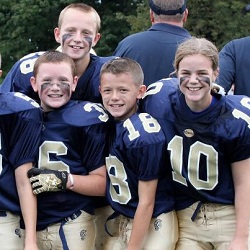Francis of Assisi began his saintly career following what he said was God’s command: “Rebuild my Church.” The new pope who took his name heard the same message from the cardinals who elected him.
By Tom Heneghan
The 13th-century Francis toured the Italian countryside repairing dilapidated chapels before realising his mission was to change the whole Roman Catholic Church.
 What the first Jesuit pope has is management experience in his native Argentina as head of the Jesuit province and chairman of the national bishops conference. As archbishop of Buenos Aires, he dealt with everything from poverty to national politics.
What the first Jesuit pope has is management experience in his native Argentina as head of the Jesuit province and chairman of the national bishops conference. As archbishop of Buenos Aires, he dealt with everything from poverty to national politics.
“He’s been at the top of the organisation, but he’s not been tamed by that,” says Rev James Hanvey, a Jesuit theologian. “In management speak, he’s held to the core values. He wants us all to refocus on the core values.”
Bergoglio’s record shows he has strong convictions and is not afraid to take unpopular decisions. Jose Maria Poirier, editor of the lay Catholic monthly Criterio in Buenos Aires, said Church staff there described him as an “attentive, human and considerate” boss who is also demanding, has little patience for bureaucracy, and appoints talented assistants.
His predecessor Benedict’s failure in this regard was partly to blame for the infighting that crippled the Curia bureaucracy and came to light in leaked Vatican documents last year.
SHAKEUP IN THE CURIA
The first hint Francis gave of plans to change the Curia came three days after his election when he reappointed its top bureaucrats temporarily rather than permanently, as Benedict did after being elected in 2005.
With his humble style, the pope has begun deflating the imperial side of the Vatican, which resembles a Renaissance monarchy with an absolute sovereign, a coterie of close advisers and Curia departments that answer to the pope but often don’t talk to each other.
Francis’s references to himself simply as the bishop of Rome – the position from which his papal authority flows – hints at a willingness to involve the hierarchy around the globe in running the world’s largest church.
Hanvey said a first step would be to call heads of national bishops conferences around the world to meet regularly in Rome as advisers. This was proposed by the Second Vatican Council (1962-1965), but Popes John Paul and Benedict used it so rarely that some bishops complained they were being “treated like altar boys” rather than senior colleagues.
The Curia needs regular cabinet meetings, more international staffers to overcome its domination by Italian clerics and a full work day rather than schedules that end in early afternoon, U.S. theologian George Weigel said.
It has only two women in senior posts, another aspect of the Curia critics say needs to be changed.
One overlooked fact is that the Curia, with just over 2,000 employees, is actually understaffed. “They’re overwhelmed,” said one senior figure from another religion in contact with the Curia, who asked not to be named.
WAITING FOR OTHER SIGNALS
The opaque operations at the Vatican bank, known as the Institute for Works of Religion (IOR), were widely discussed among cardinals ahead of the conclave. Francis has criticised globalisation and unfettered capitalism in the past, so he may take a critical look at the bank, but he has not indicated his plans.
The book “His Holiness,” which published the leaked Vatican documents last year, detailed alleged corruption, inflated prices for work in the Vatican and clashes over the management at the bank.
The Council of Europe and the Bank of Italy have criticised it for lax anti-money-laundering controls and oversight, two areas where the Vatican says it is improving.
Critics also say the Church has not compensated victims of sexual abuse enough or held bishops sufficiently responsible for covering up cases. Francis would quickly tarnish his compassionate image if he did not go beyond the apologies and meetings with victims that Benedict pioneered.
Reputed to be a theological conservative, Francis has criticised Argentina’s government for legalising same-sex marriage, opposes abortion and women priests and defends the celibacy rule for male clergy. But he has also upbraided priests who refused to baptise babies of unmarried mothers. He has admitted to being “dazzled” by a young lady while in the seminary and said he helps priests who struggle with their vow of celibacy.
All this suggests a softer edge to some of his positions. “Benedict was clearly labelled” as a doctrinaire conservative, said Italian theologian Massimo Faggioli. “It will be easier for (Francis) to say things without the audience having a ready response.”
Complete Article HERE!


